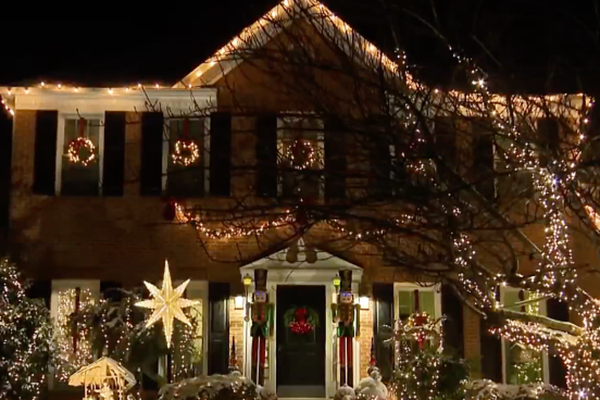
Confidential settlements and non-disclosure agreements have been used to bury dark truths for decades. They enabled the predatory behaviour of Harvey Weinstein and Fox News’ Roger Ailes to go unchecked. Such agreements have stopped whistleblowers from revealing information — despite their impulse to tell the truth at almost any cost — and have been used by powerful institutions against individuals who don’t have the finances, energy or organisational support to see the legal battle through.
So why would the ABC seek to silence an employee who claims the broadcaster has breached its charter of independence by buckling to political pressure?
These questions are central to the case of former radio presenter Nicole Chvastek, who last month resigned from the ABC after reaching a confidential settlement, thereby putting an end to her Fair Work Commission action alleging bullying by the broadcaster.
As Crikey revealed last week, a central allegation in Chvastek’s dispute is that Victorian National Party MP Darren Chester complained to an ABC executive in Sydney HQ over the presenter’s coverage of federal government flood relief. The executive then allegedly sent an instruction to the ABC’s Ballarat studio for Chvastek to “get a Liberal” for an interview.
Crikey understands the ABC also set up an internal process to inquire into whether or not the presenter had breached the broadcaster’s impartiality rules, and she was cleared. All this is alleged to have occurred in the shadow of the 2022 elections, with political sensitivities at their peak.
The incendiary allegations could shed light on the ABC’s responses to political pressure. Yet due to a legal settlement, the allegations were never publicly aired in the Fair Work Commission and Chvastek nor her lawyer can speak on them. The ABC’s position is that it will make no further public comment on Chvastek. Darren Chester has not answered Crikey’s requests for answers.
Case closed. But should it be?
The ABC’s audience will never know if the broadcaster caved to political pressure in this instance.
According to Dr Simon Longstaff, executive director of the Ethics Centre in Sydney, organisations like the ABC should have a “principled commitment” to publishing information that is in the public interest. They should also rarely insist on confidentiality clauses when there are public interest questions at stake, “and only when there are overwhelmingly good reasons for doing so”.
“An exception would be if the employee themselves, or some other affected person, wanted confidentiality to protect their legitimate interests,” he told Crikey.
Longstaff said that preventing embarrassing information from emerging is not sufficient reason for an organisation to seek secrecy in a settlement.
“Unfortunately though it has become very common,” he said.
An entire complaints industry has grown up around the ABC. A reporter — OK, “content maker” — can be made accountable in a multitude of ways. Consider the gauntlet.
First, there is the standard complaints process where an audience member can simply lodge their complaint via an online form.
Then there is the government regulator, the Australian Communications and Media Authority (ACMA), which oversees the ABC’s compliance with its code of practice. This is where organisations and individuals can head if they aren’t satisfied with the ABC’s answer to their complaint.
The ACMA infamously found that a Four Corners double-episode program, “Fox and the Big Lie”, reported by Sarah Ferguson, had breached the ABC’s code requirements of accuracy and fair and honest dealing. That was at the end of 2022, just months before the Dominion Voting Systems defamation case against Fox in the US resulted in the Murdoch organisation paying out US$787.5 million for peddling the lie of Trump’s stolen election.
As an alternative to the ACMA, there is the ABC’s internal ombudsman, which ABC chair Ita Buttrose announced just before the last federal election. It has, for example, upheld complaints about a young ABC radio reporter in Alice Springs.
The ABC has also commissioned independent investigations of programs that have caused a kerfuffle. The best known of these was an examination of Exposed: The Ghost Train Fire, a documentary presented by Caro Meldrum-Hanna. The examination concluded that the program may have unfairly dealt with allegations surrounding former NSW premier Neville Wran.
In Canberra, Senate hearings have given a platform for up-and-coming Coalition senators to make a name for themselves by publicly skewering mid- to senior-level ABC bureaucrats. All manner of ABC names have fallen foul of this process. Four Corners reporter Louise Milligan has been a favourite target.
Then there are the defamation laws and the courts. All media organisations are subject to these. Leading ABC investigative reporter Mark Willacy was last week in Federal Court after being sued by former special forces officer Heston Russell.
Crikey understands that the ABC’s defamation bill — more than $700,000 in settlements since 2020 — has led to a new system of managing defamation risk. Crikey understands that a report is referred up the management chain if it exceeds a certain level of risk, granting managers more decision-making power.
On top of all that is the court of public opinion and the conservative trolls of social media.
And finally there are the never-ending News Corp campaigns against ABC personalities, such as Patricia Karvelas, as well as the publisher’s determination to fan controversies over any ABC lapse, real or imagined, all of which feeds into a political-ABC doom loop.
So if the ABC really did overreact to a call from a politician, as alleged in the Chvastek case, then it would appear to be in the public interest for that to be openly debated, rather than covered by confidentiality.
Crikey asked the ABC to comment on its use of confidential settlements in cases that raised public interest questions. The ABC said it had no comment.







